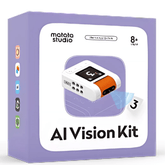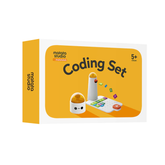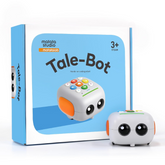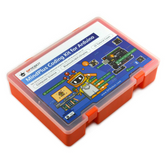CBSE Adds 33 Skill Modules with AI & Coding in 2025 for Classes 6-8
Summary
The Central Board of Secondary Education (CBSE) has announced a significant update for the academic year 2025, introducing 33 new skill modules for students in classes 6, 7, and 8.
These modules will include contemporary subjects like Artificial Intelligence (AI) and coding, aiming to equip students with future-ready skills from a young age.
This initiative marks a major step towards modernizing the Indian education system and aligning it with the demands of the 21st-century workforce.

The Imperative of Skill-Based Education
In today's rapidly evolving world, traditional rote learning is no longer sufficient to prepare students for the challenges and opportunities that lie ahead.
The industrial market's persistent demand for employability skills has made it necessary to integrate skill-based education into the core curriculum.
The goal is to create a future-ready workforce by equipping students with practical knowledge and abilities.
The integration of computing skills across various disciplines is becoming increasingly crucial, as technology now permeates every aspect of our lives.
A strong foundation in areas like AI and coding can empower students to become not just consumers of technology, but also creators and innovators.
CBSE's Vision for a Future-Ready Generation
CBSE's introduction of new skill modules is a forward-thinking move that aligns with the National Education Policy (NEP) 2020, which emphasizes skill development and a multidisciplinary approach to learning.
By introducing subjects like AI and coding in middle school, the CBSE aims to cultivate a new generation of learners who are adept at problem-solving, critical thinking, and innovation.
The new curriculum is designed to foster computational thinking, which is the ability to break down complex problems into smaller, manageable parts and develop solutions systematically.
This skill is not only essential for computer science but is also a valuable asset in any field of study or career path.
New Skill Modules added by CBSE
While a complete and detailed list of all 33 skill modules is not yet available, the inclusion of AI and coding provides a clear indication of the direction in which CBSE is heading.
Here's a look at what students in classes 6, 7, and 8 can expect to learn from these new modules:
- Artificial Intelligence (AI): The AI module will likely introduce students to the fundamental concepts of AI, its applications in daily life, and the ethical considerations surrounding its use. Students may engage with AI-powered tools and platforms to understand how they work and learn to build simple AI models.
- Coding: The coding module will focus on developing programming skills, which are essential for creating software, websites, and applications. Students are likely to start with block-based programming languages, which provide a visual and intuitive way to learn coding concepts like variables, loops, and conditionals. As they progress, they may be introduced to text-based programming languages like Python.
- Other Skill-Based Subjects: In addition to AI and coding, the 33 skill modules are expected to cover a wide range of subjects designed to provide students with practical skills and hands-on experience. These may include areas like data science, design thinking, financial literacy, and more.
The introduction of these modules will be a significant step in making learning more engaging, relevant, and fun for students.
It will help them discover their interests and talents at an early age and make informed choices about their future education and career paths.
Benefits for Students
The integration of AI and coding into the middle school curriculum offers a multitude of benefits for students:
- Enhanced Problem-Solving Skills: Learning to code and work with AI requires logical thinking and a systematic approach to problem-solving. These skills are transferable to other subjects and real-life situations.
- Improved Creativity and Innovation: Coding and AI provide students with the tools to create their projects, from simple animations and games to more complex applications. This encourages them to think outside the box.
- Better Career Prospects: In a world increasingly driven by technology, proficiency in AI and coding is a highly sought-after skill. Early exposure to these subjects can open up a wide range of career opportunities for students in the future.
- Increased Digital Literacy: Understanding how technology works is crucial for navigating the digital world safely and responsibly. The new skill modules will help students become more informed and discerning users of technology.
Challenges for implementing the changes
While the introduction of new skill modules is a commendable initiative, its successful implementation will require addressing several challenges.
One of the biggest challenges will be to ensure that schools have the necessary infrastructure, including computers and high-speed internet access, to teach these subjects effectively.
Another challenge is the need to train a large number of teachers in these new and emerging areas.
Teachers will need to be equipped with the right skills and knowledge to deliver the curriculum effectively and inspire students to learn.
Furthermore, the curriculum will need to be updated regularly to keep pace with the rapid advancements in technology.
This will require a continuous process of review and revision to ensure that students are learning the most relevant and up-to-date skills.
Conclusion
The CBSE's decision to introduce 33 new skill modules, including AI and coding, for classes 6, 7, and 8 from the 2025 academic year is a landmark reform in the Indian education system.
It reflects a clear understanding of the need to prepare students for the future and equip them with the skills they need to succeed in the 21st century.
This initiative has the potential to transform the learning experience for millions of students, making it more engaging, relevant, and impactful.
By fostering a culture of innovation and inquiry from a young age, CBSE is paving the way for a brighter future for the next generation of learners in India.
















